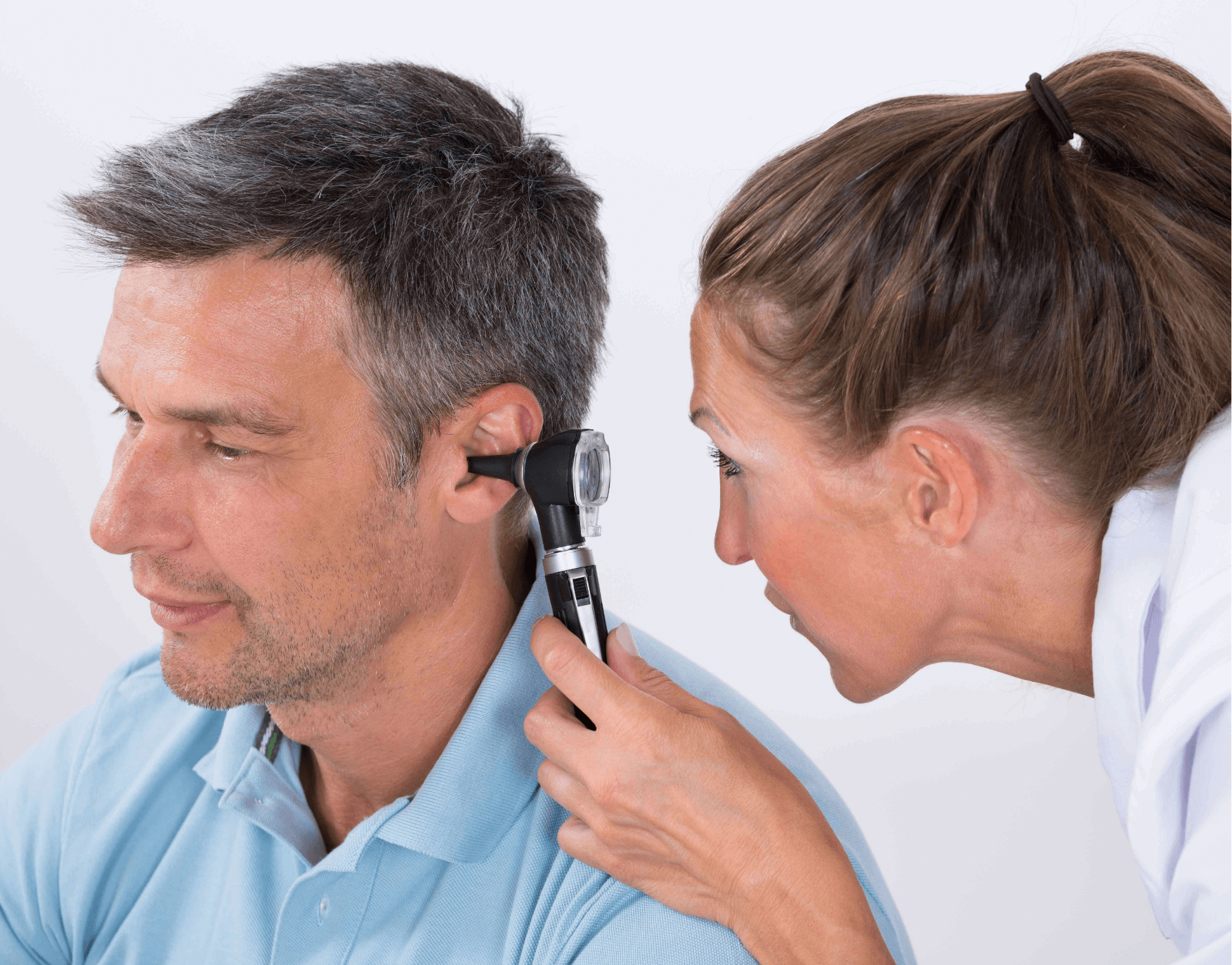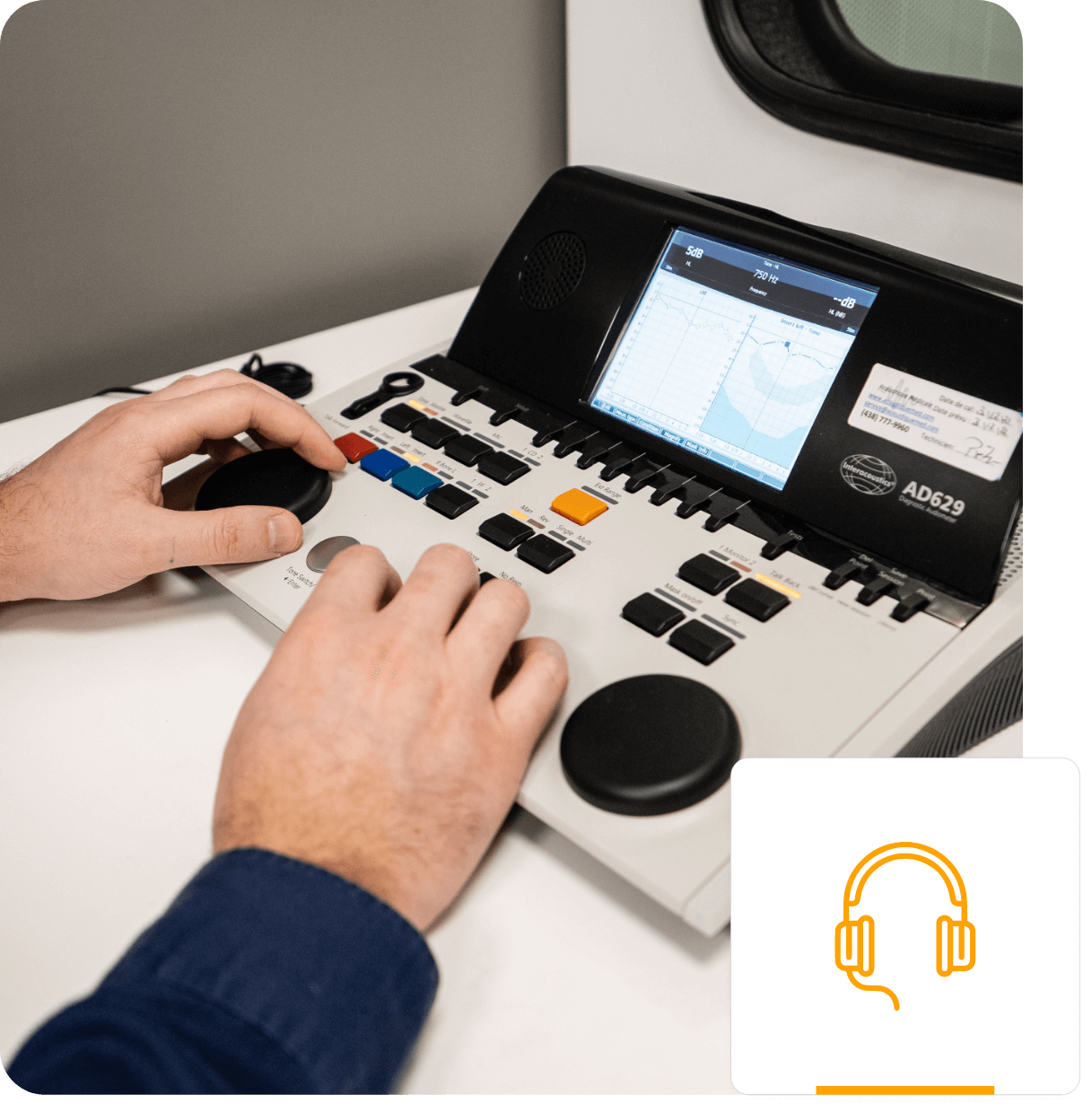
Diagnosis of the auditory and vestibular system
The audiologist's first mission is to evaluate the hearing and vestibular systems of patients. To do this, he performs audiometric tests with special equipment that simulates different situations to obtain a complete assessment (an audiogram ). The objective is to determine your hearing profile in order to select the treatment best suited to your needs.
Hearing Treatment
Following this evaluation, the audiologist will propose solutions adapted to your situation to improve your quality of life.
A true partner, they assist you in several ways:
-
Recommendation of an appropriate treatment (hearing aid, personalized ear plugs, etc.).
-
Accompaniment following the acquisition of hearing aids (monitoring the evolution of your hearing condition, maintenance of the devices, necessary adjustments, etc.).
-
Redesigning your living environment to promote your autonomy in everyday life (amplified telephone, infrared system, light signals, etc.).
-
Moral support (for a smooth adaptation to your new condition).
-
Communication of the necessary information to yourself and your entourage.
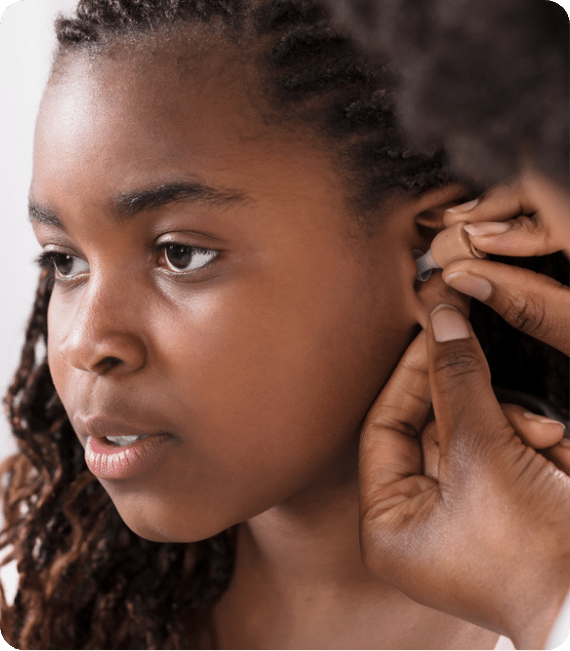
When to see an Audiologist?
Hearing is a precious sense that must be taken care of throughout life.
We advise you to see an audiologist if:
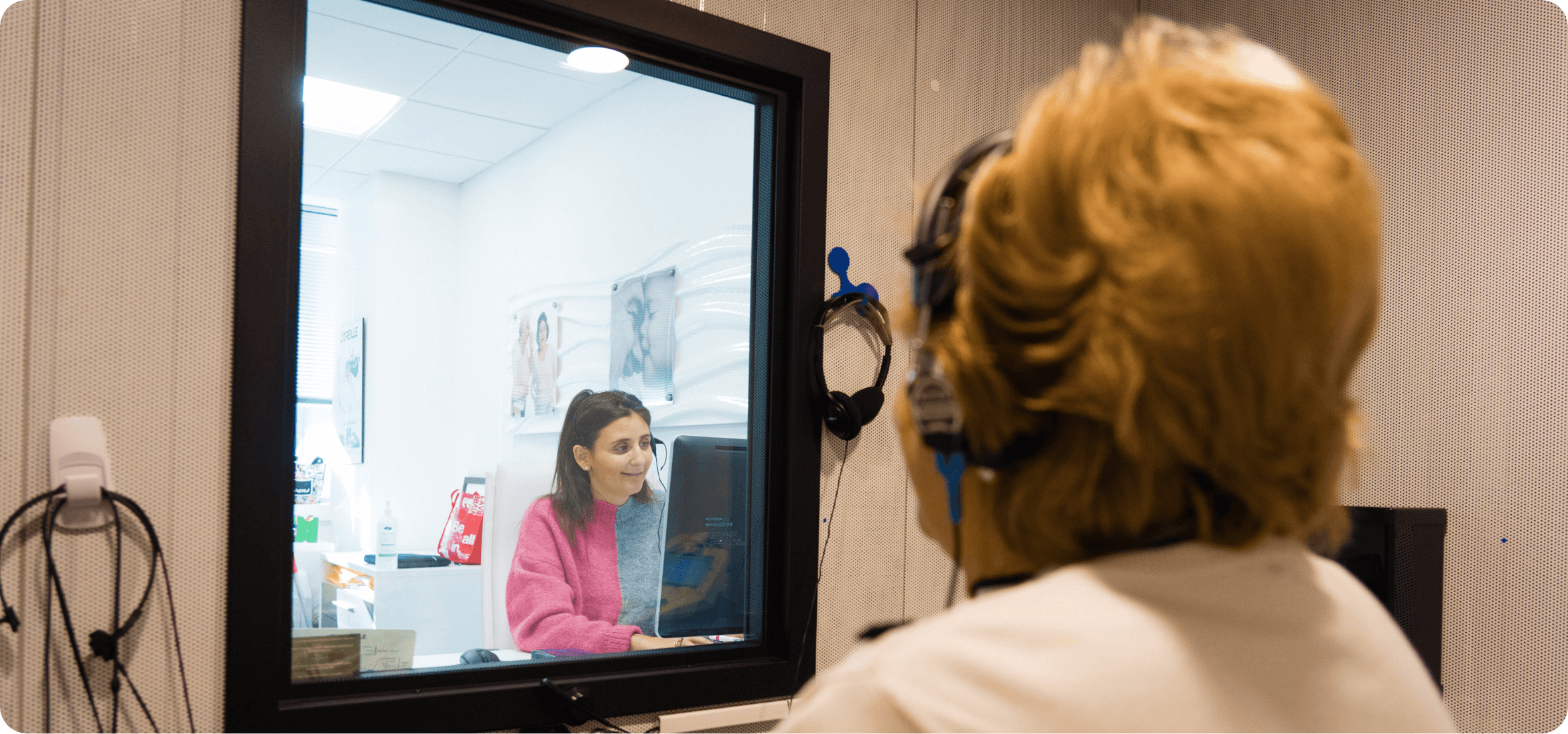
Your hearing is declining: you regularly ask your friends and family to rehearse, you gradually turn up the volume on the TV or radio, your relatives tell you that you hear badly, etc. These are signs of hearing loss.
You are regularly subjected to loud noises, for example at your workplace. Your hearing can then deteriorate more quickly.
You have tinnitus: you feel like you hear buzzing, whistling, or clicking.
You suffer from vertigo: since the inner ear directly affects balance, hearing problems can cause dizziness.
You are experiencing ear pain: an ear infection or trauma can lead to hearing loss.
If you wish to test your hearing, contact us now!
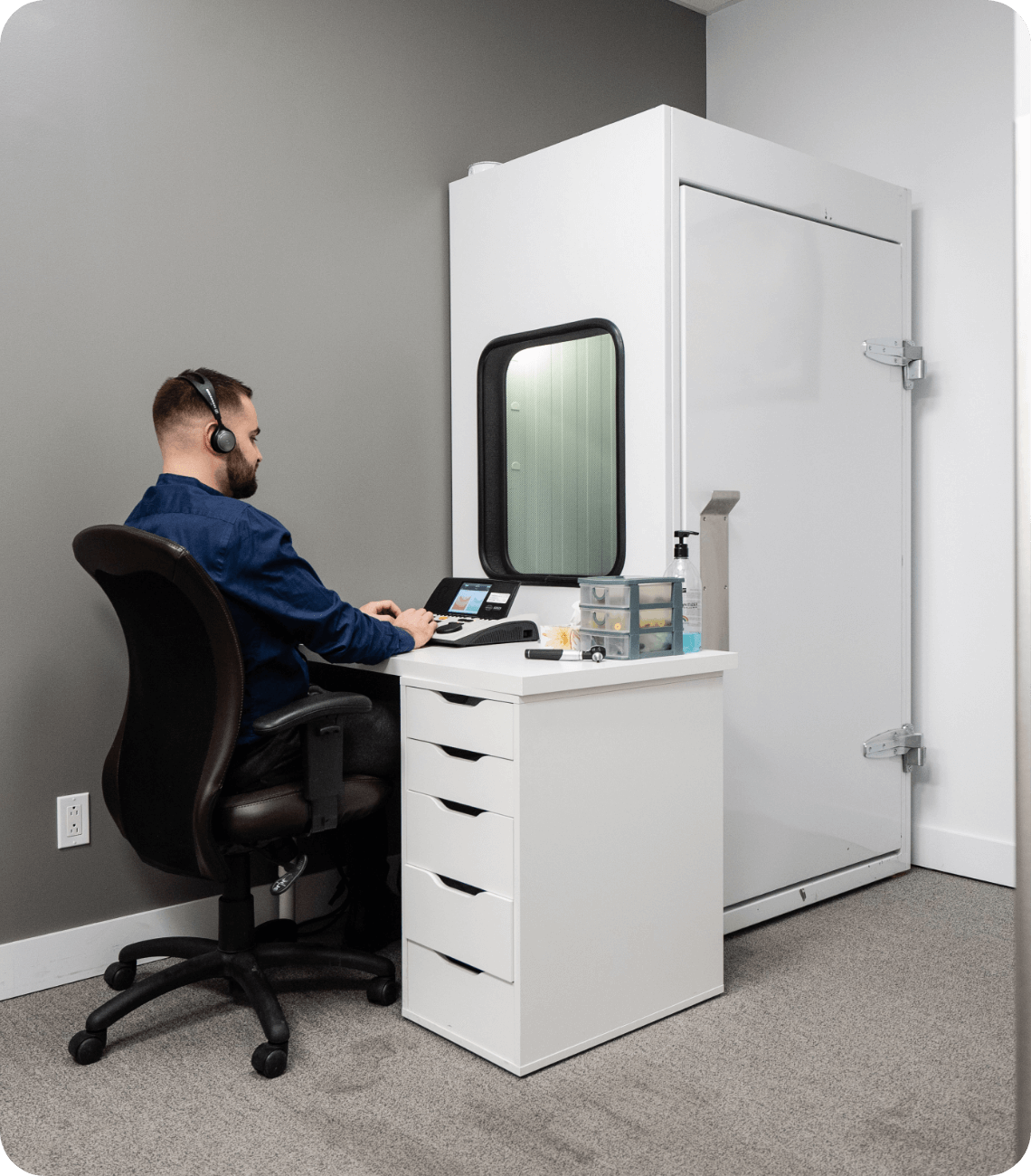
What training does an audiologist have?
Audiology is an exclusive profession. Any audiologist, whether practicing in Montreal, on the North Shore, the South Shore, or elsewhere in the province, must be a member of the Ordre des orthophonistes et des audiologistes du Quebec (OOAQ) in order to use this title and practise his or her profession.
In order to join the OOAQ, he must first undertake and complete a specialised bachelor's degree (in biomedical sciences, cognitive neuroscience, or neuroscience), and a master's degree in audiology, where he will have studied, among other things, cellular and molecular biology, general immunology, and the structure and physiology of the nervous system.
The Order has about 450 audiologists in Quebec, including about 150 practising in the Montréal area, about 10 in Laval, and about 50 in the Capitale-Nationale region.
Check here to see if your audiologist is a member of the Collège.
Frequently Asked Questions
n order to help patients and prescribe appropriate treatment, an audiologist must, among other things:
- have a healthy hearing;
- demonstrate empathy and patience (especially with patients with psychological problems related to their hearing loss);
- be organized (he should provide you with well-defined treatment and rehabilitation plans).
The audiologists who work with the Masliah Centres will take care of you entirely and offer you all the necessary support. Never hesitate to ask them questions or share your concerns with them.
